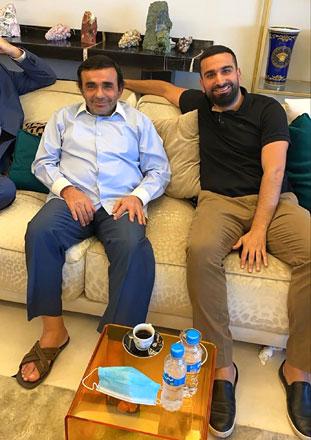- International News
- Thu-2020-07-09 | 03:22 pm

Kassim Tajideen, 64, had been extradited to the United States after he was designated as a financier of Hizbollah, a key Lebanese political player that Washington has listed as a "terrorist organisation”.
In late May, a US judge granted an emergency request for compassionate release on the grounds that Tajideen’s age and "serious health conditions” made him vulnerable to the novel coronavirus in prison.
His family in a statement welcomed "his return to Beirut after a painful absence of over three years in prison in the United States”.
It said his return, which was also reported by the National News Agency, had been delayed "until a plane was provided to transport him and other Lebanese citizens from the United States to Lebanon”.
Tajideen’s release has stirred speculation it was a US response to Lebanon’s release in March of Amer Al Fakhoury, a naturalised US citizen and former member of a pro-Israel militia accused of torture as a prison warden.
But Tajideen’s lawyer has said it was not a swap.
A wealthy businessman with companies in central and west Africa as well as Belgium, Tajideen was deemed a "specially designated global terrorist” by the United States in 2009 for allegedly providing tens of millions of dollars and other support to Hizbollah.
He was arrested in Morocco and extradited to the United States in 2017, where he was charged with violating US sanctions by providing financial support to a "designated terrorist organisation”, as well as money laundering.
After he pleaded guilty to one count of conspiracy to launder money as part of a scheme to evade US sanctions, he was sentenced in 2019 to 60 months in prison and ordered to forfeit $50 million.
His return to Lebanon comes as the country grapples with its worst economic crisis in decades and tensions spike between Hizbollah and the United States.
Hizbollah chief Hasan Nasrallah on Tuesday blasted the US ambassador to Lebanon as a "military ruler” who was inciting tensions after she accused the party of stealing billions from state coffers.
Hizbollah is the only group not to have disarmed after the 1975-1990 civil war, and is a major player in the country’s politics.













